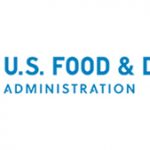
Training plays a huge role in the effective implementation of FSMA. The preventive controls for human food final rule calls out areas in which training is now obligatory, namely ensuring that employees involved in the manufacturing, processing, packaging and holding of food are properly educated on food safety and food hygiene (mandated under Current Good Manufacturing Practices). FDA has initiated an extensive training strategy, part of which includes establishing a National Coordination Center (the agency awarded a $600,000 grant to the International Food Protection Training Institute in October), along with several collaborative efforts with other federal agencies and industry partners.
Although many food companies have been conducting training as part of their standard procedures, preparing employees for the implementation phase of FSMA may be more complicated than they anticipated. In a Q&A with Food Safety Tech, Gary Smith, director of food safety services at Eurofins Scientific, shares insights on some of the hurdles that industry is encountering (including manufacturers in the animal food arena) related to training and FSMA compliance.
Food Safety Tech: How has FSMA changed the landscape of employee training?
Gary Smith: There are a couple of updates that are very important to note for the industries as a whole. First, employee training is now mandatory for both human food facilities and, probably even more importantly, animal food facilities. Many of the human food folks may have been asked by customers or by other entities via corporate internal procedures to do training of employees and to have a training program in place. For a lot of the pet food and animal feed manufacturers, having a comprehensive training program for all employees is significantly different than what has been requested and expected of them in the past.
Second, the preventive controls rule for both human food and animal food specifically requires that animal food and human food manufacturers conduct training of all their employees on at least food safety and food hygiene topics. Now, what does that mean? We’re interpreting that to mean basic GMPs as well as common food safety hazards. Realistically, this will probably be a 30 to 60-minute training session in which everyone in the facility will have to attend, and FDA doesn’t state specifically that it has to be done more than at least once. There is no frequency for re-training. However, once the compliance dates are effective, it’s mandatory that the training has been completed. This is a new concept for the majority of industry who may have had corporate training programs or customer-driven training programs, but never a mandated regulatory requirement for training.
FST: What challenges do food companies face in ensuring that employees are prepared for the implementation phase?
Smith: There’s the challenge of putting together the training, which, in the big picture of FSMA, shouldn’t be that big of a deal.
Some of the biggest challenges companies face (especially in trying to get ahead of the game and be proactive) is the identification of the preventive controls qualified individual. Is it an internal person? Is it a consultant? Do they have to go through a specific training class? The answer is yes, they do. How do they deal with foreign suppliers? A lot of folks are really confused about the concept of the Foreign Supplier Verification Program rule and what it means. Do they need to audit [their suppliers]? Do they need to be GFSI certified? There are a lot of questions concerning the importation of ingredients from outside the United States—what’s the requirement? This is probably the biggest area in which people seek clarity.
Another [challenge] is internal supplier approval, because the new rule talks about supplier approval as one of the preventive controls that has to be in place. Again, who can do those audits? When do we have to conduct an audit? What does the audit have to cover? A lot of folks are struggling with this area as well.
The last challenge: A lot of folks have HACCP, whether they are human or animal food manufacturers, and this has been required or requested by customers for a while. But how do we transition from having a HACCP plan to a food safety plan that meets the preventive control requirements in addition to the HACCP requirements? How do I build in allergen management as a preventive control? How do I build in sanitation as a preventive control? How do I build in supplier approval as a preventive control? There are a lot of questions surrounding whether companies should scrap their HACCP plan and start over, or whether they have to add on to it.
FST: Eurofins offers an extensive training schedule for the first half of 2016. How do these offerings play into FSMA’s compliance requirements?
Smith: Eurofins is now offering the highly anticipated 2.5-day training created by the FDA’s Food Safety Preventive Controls Alliance (FSPCA). The standardized curriculum is designed to meet the training requirements under Title 21 Code of Federal Regulations Part 117.115 for the “preventive control qualified individual” who conducts certain Food Safety Plan activities. In addition, Eurofins offers core courses such as Environmental Monitoring, Internal Food Safety Auditing and HACCP to help support the development and implementation of a company’s food safety plan.








